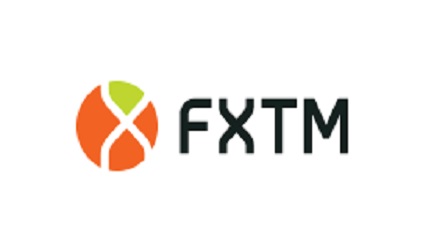E-Financial
Forex Copy Trading – A Trend Set to Last

It is said that the forex markets are the domain of experienced traders, and it is certainly true that trading has become increasingly more fast-paced as new financial instruments and underlying assets become available.
Advances in technology are also contributing to the creation of new ways to trade and leading the way are the increasingly popular copy trading platforms. For new traders, the sheer range of choice and constant changes in the markets can be intimidating, so copy trading can be an attractive option.
The concept behind copy trading is very straightforward: essentially experienced strategy managers share their trades with their followers, who can then choose to copy their strategies.
This brings benefits to both parties; investors have a better opportunity of making successful trades by following an expert in the markets, and managers make commissions on their portfolio of followers.
This type of trading appeals to the modern trader’s desire to share their success and trading experiences, aspotential investors have full access to a manager’s performance statistics and the desire of novice traders to gain access to forex trading without having the technical background.
So, why isn’t a copy-trading system used by everyone, everywhere?
This was the question raised during the research and development stage for FXTM Invest, and we concluded that there were certain areas which existing copy trading platforms could be improved upon, and could make copy trading more inviting:
Firstly, there were few easy-to-use, transparent and reliable platforms to carry out copy trading effectively. The available systems were often either too complicated or too primitive.
Secondly, not many of these programs had simple tools to ‘match’ the risk profiles of the strategy managers versus their followers, meaning that conservative investors might accidentally choose to copy the trades of a manager who had a high risk tolerance.
Finally, the issue of slippage remained a constant issue within copy trading programs, especially during periods of volatility.
It was clear that those were the demands FXTM Invest had to meet, and it was only after addressing them that we saw the potential of it becoming this much-needed and extremely popular tool.
The reality is that the markets are risky, so managing to provide traders with more reliable tools to manage this risk, is rewarding to both them and us.
After we launched FXTM Invest, we were excited about how fast novice traders adopted it.
We also noticed that the program was particularly popular amongst certain types of traders, for example in Asia 28% of those signed up to FXTM Invest are male and under the age of 35, and in Africa it is 22% for the same demographic.
Our Nigerian clients in particular, have been attracted to join the program, both as strategy managers and investors.
The key reasons behind FXTM Invest’s success are its easy-to-use interface and that both strategy managers and investors are guaranteed the same execution price and full transparency on the risk-management side.
Each strategy manager is assigned a risk level from conservative to aggressive, so it’s easy for investors to spot which manager matches their risk tolerance.
Investors are also able to limit their risk using safety mode. This feature works by setting an investment coefficient, so for example if the coefficient is set at 0.5 and the strategy manager invests $100, the investor will only trade $50.
Furthermore, each strategy manager’s current profit performance and commission level is always displayed giving investors extra assurance in their choice of strategy managers.
Experienced traders who wish to become strategy managers, now have the opportunity to not only enhance their expertise, but to also multiply the gains on their successful trades while sharing their know-how with new investors.
A fully transparent ranking system, measured in manager profitability, gives the strategy managers the opportunity to increase their follower popularity, as the higher they rise the more their strategies will be viewed by investors.
Investors, on the other hand, can gain access to market opportunities through the strategies they choose to follow as they diversify and expand their trading portfolio.
FXTM Invest’s approach to copy trading has proved its value to traders and strategy managers. In my opinion, the increased transparency of each investor’s risk management and potential return on investment means that forex copy trading is a trend set to last.
Jameel Ahmad, VP of Corporate Development & Market Research
E-Financial
Zenith Bank Gets Regulatory Approval for Full Takeover of Paramount Bank

Zenith Bank, Nigeria’s second biggest lender by market value, has received approval from the Competition Authority of Kenya (CAK) to acquire 100 percent of Paramount Bank Limited, clearing a key regulatory hurdle in its East African expansion drive.

In a statement on Thursday, CAK said the transaction is “unlikely to lead to a substantial prevention or lessening of competition in the market for the provision of banking services in Kenya” and would strengthen Paramount’s financial position, helping it meet enhanced core capital requirements over the long term.
The Kenyan regulator noted that the deal poses no risk of reduced competition in the country’s banking sector. Zenith currently has no banking operations in Kenya, while Paramount is a Tier III lender with a modest 0.2 percent market share.
“The approval is based on the Authority’s determination that the transaction is unlikely to harm competition, while any negative public interest concerns regarding employment can be addressed through mitigating remedies,” CAK added.
Paramount met the Central Bank of Kenya’s KSh3.0 billion core capital requirement in November last year, reporting KSh3.118 billion after raising KSh332 million from shareholders, according to Mwango Capital, a Nairobi-based research firm.
The deal reflects a broader shift among banks in East Africa’s largest economy as lenders seek growth opportunities beyond increasingly saturated home markets marked by weak credit expansion, rising regulatory costs, and intense competition.
While several global banks — including Standard Chartered and HSBC — have scaled back African operations over the past decade, Zenith’s move signals confidence in selective regional expansion, particularly in East Africa, where economic growth and financial inclusion trends remain supportive.
The banking group is also widening its continental footprint. Last month, the lender disclosed plans to expand into Ethiopia, Africa’s second most populous country, as it targets generating up to half of its profits outside Nigeria over the medium term.
Historically, Nigeria, the continent most populous nation contributed as much as 90 percent of the bank’s earnings, a dominance that is now gradually easing.
Data cited by The Africa Report show that profit contributions from foreign subsidiaries rose to 27 percent in the first nine months of 2025, up from 14 percent in 2024.
Nigeria’s banking recapitalisation drive is also pushing large lenders such as Zenith to deploy capital beyond their home market. In January 2025, Zenith — which holds an international banking licence — raised N350.4 billion ($242 million), lifting its paid-up capital to N614.6 billion ($425 million).
With higher capital buffers in place, banks are reassessing how best to deploy fresh funds as domestic earnings normalise following two years of windfall gains.
As part of the approval, Zenith has been required to retain Paramount’s 78 employees for at least 12 months after the transaction is completed.
The bank is listed on the Nigerian and London stock exchanges and operates across corporate, commercial, retail, and investment banking. Its international subsidiaries span the United Kingdom, Ghana, Sierra Leone, Gambia, the UAE, and China.
E-Financial
Court Jails Ogiemwonyi, Stockbroker for Theft of $80,000, N953m Shares Proceeds

Victor Ogiemwonyi, a Lagos stockbroker, and Partnership Securities Limited, his company, have been convicted for allegedly stealing shares worth N953 million and $80,000 belonging to one Mr. Arnold Onyekwere Ekpe, a former managing director of Ecobank Transnational Incorporated (ETI).

Ogiemwonyi was convicted after he was found guilty of two-count charges bordering on stealing, contrary to Section 285(1), (9) (b) and (c) of the Criminal Law of Lagos State, 2011 slammed on him by the Economic and Financial Crimes Commission (EFCC).
Ekpe, through Messrs Margaret Onyema, his counsel, has sometimes in October 2016 in a petition to the EFCC alleged that he instructed the defendants to sell his 96,077,872 units of Ecobank Transnational Incorporated (ETI) shares, which were sold at the rate of N1,296,885,311.02.
But he said out of the proceeds of the sale, the stock broker paid only N300,000,000.00 to him while he dishonestly diverted the balance for personal use.
Following investigations, the defendants were charged with two counts of stealing.
Count one reads:
”Victor Ogiemwonyi and Partnership Securities Limited between the months of June, 2016 and September, 2016 at Lagos within the jurisdiction of this honourable court dishonestly stole the sum of N953, 535,861.57 (Nine Hundred and Fifty Three Million, Five Hundred and Thirty Five Thousand, Eight Hundred and Sixty one Naira Fifty Seven Kobo) being part of the proceeds of sale of 96, 077, 872 Ecobank Transnational Incorporated Shares, property of Mr. Arnold Onyekwere Ekpe”.
Count Two reads:
“Victor Qgiemwonyi and Partnership Securities Limited sometime between June, 2016 and July, 2016 at Lagos within the jurisdiction of this honourable court dishonestly stole the sum of USD$80,000.00 (Eighty Thousand United States of America Dollars) which formed part of the accrued dividends on 96, 077,872 Ecobank Transnational incorporated Shares, property of Mr. Anold Onyekwere Ekpe”.
At trial, the prosecution, led by Ola Sesan, called five witnesses and tendered 67 exhibits, all of which were admitted and marked by the court.
The defence, on its part, called three witnesses, including the first defendant.
Delivering judgment on Wednesday, Justice Modupe Nicole-Clay of the Lagos State High Court sitting in Ikeja, Lagos convicted Ogiemwonyi and his company, Partnership Securities Limited, guilty on all counts.
The court sentenced the first convict to pay a fine of N10 million, while the second convict was ordered to pay a fine of N20 million.
Also, the court directed the convicts to pay back the entire money stolen from the petitioner, both in naira and dollars.
Recall that Securities and Exchange Commission, SEC, had in 2017 banned Victor Ogiemwonyi, from operating in the capital market for life over alleged unprofessional conduct in the Nigerian capital market.
He was also banned for life from holding directorship position in any public company in Nigeria.
He was also ordered to pay a penalty of N100,000.
SEC said Ogiemwonyi was banned after he was found guilty of breaching Rule 1(iii) of the Code of Conduct for Capital Market Operators and Their Employees as contained in its Rules and Regulations made pursuant to the Investments and Securities Act 2007.
The ban also followed petition by EFCC to SEC accusing Ogiewonyi of misappropriation of about N1.24 billion, $80,000.00, stealing and dishonest conversion of proceeds of share sale belonging to an investor.
It was alleged that he used his company to dupe over 300 investors over N4.8 billion with Arnold Ekpe a former Managing Director of Ecobank Transnational Incorporated, ETI, being one of his victims.
E-Financial
FCCPC Delists Non-Compliant Digital Lenders Post-January 5 Deadline

Federal Competition and Consumer Protection Commission (FCCPC) has commenced enforcement actions against Digital Money Lending (DML) operators that failed to regularise their operations under the Digital, Electronic, Online and Non-Traditional Consumer Lending Regulations, 2025 (DEON Regulations).

FCCPC
The commission withdrew the conditionally approved status of non-compliant DML firms and removed them from its official register of approved digital lenders, effective immediately after the January 5 compliance deadline.
FCCPC Executive Vice Chairman and Chief Executive Officer, Mr Tunji Bello, announced the measures on Wednesday, emphasising their role in upholding regulatory standards and ensuring certainty in Nigeria’s digital lending sector.
Mr Bello stated that the compliance window provided under the DEON Regulations, which took effect on July 21, 2025, had closed, paving the way for fair, orderly and due process-driven enforcement.
He noted that the actions target persistent issues such as exploitative loan recovery tactics, data privacy breaches, harassment of borrowers and anti-competitive practices that have plagued the sector.
The DEON Regulations, issued on September 3, 2025, under the Federal Competition and Consumer Protection Act 2018, mandate all non-bank digital lenders to register, adhere to fair interest rates, ethical debt recovery and robust data protection measures.
Non-compliance now attracts severe penalties, including fines up to N100 million or one per cent of annual turnover, operational restrictions, app store delistings and potential director disqualifications for up to five years.
As of late 2025, the FCCPC had granted full approval to 438 digital lending companies, with recent data indicating over 521 firms now under regulatory scrutiny post-deadline.
The commission’s phased crackdown involves collaboration with the Central Bank of Nigeria, Google and Apple for account freezes and global app removals targeting unregistered platforms.
Industry watchers described the enforcement as a landmark move to sanitise Nigeria’s fast-expanding digital credit market, which has seen rising borrower complaints despite earlier 2022 interim guidelines.
The FCCPC reiterated its commitment to balancing innovation with consumer protection, urging affected operators to swiftly meet requirements for reinstatement.

 Telecom3 days ago
Telecom3 days agoSpacecoin Secures Licenses to Roll Out Satellite Connectivity in Nigeria, Kenya

 Telecom3 days ago
Telecom3 days agoGoogle Report: Nigeria Leads Global AI Adoption in Learning, Entrepreneurship

 E-Business3 days ago
E-Business3 days agoWhat the Retail and E-commerce Sector Should Expect in 2026 in Era of AI-driven Shopping and Privacy

 Telecom3 days ago
Telecom3 days agoAVEVA Names Khaled Salah Vice President for Africa to Drive Growth

 E-Financial3 days ago
E-Financial3 days agoFG Shops for N900Bn from Domestic Market with High-Yield Bonds

 Telecom3 days ago
Telecom3 days agoNetflix Switches Warner Bros. Bid to $27.75 Cash Offer as MultiChoice Secures HBO Future

 E-Financial3 days ago
E-Financial3 days agoCBN Raises Alarm over Loan Defaults by Households, Corporates

 General News3 days ago
General News3 days agoTaraba Adopts Electronic Case Management System















